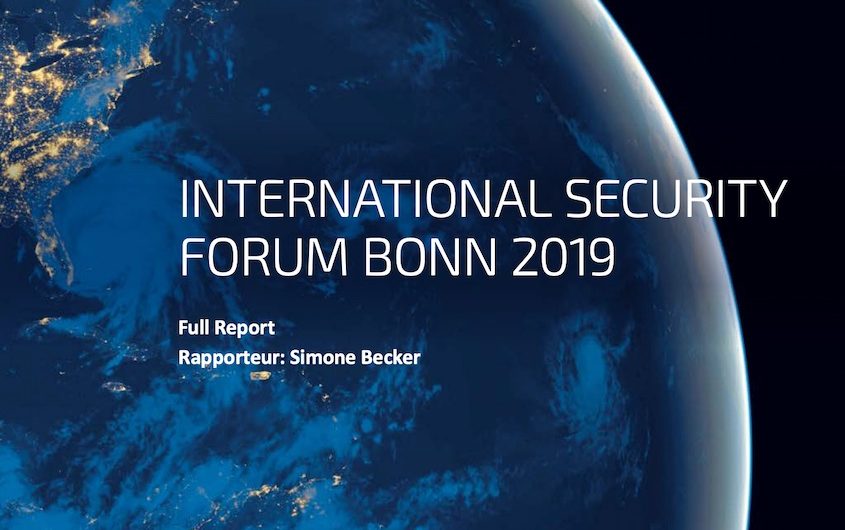
A Strategic Outlook
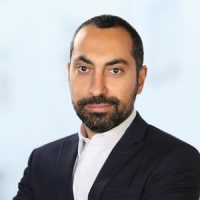
Arash Duero
European Centre for Climate, Energy and Research Security (EUCERS)
Arash Duero, Senior Fellow at the European Centre for Climate, Energy and Research Security (EUCERS), Department of War Studies, King’s College London, and Advisor to the World Energy Council’s Global Gas Centre.

Benjamin Fricke
Konrad Adenauer Stiftung
Benjamin Fricke is a Policy Advisor for Transatlantic Relations at the Konrad
Adenauer Stiftung.
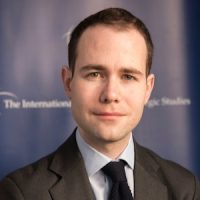
Benjamin Rhode
International Institute for Strategic Studies
Dr. Benjamin Rhode is Senior Fellow for Transatlantic Affairs and Editor of The Adelphi Series at the International Institute for Strategic Studies (IISS).
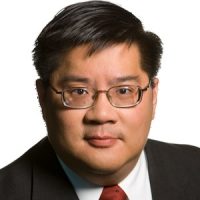
Dean Cheng
Heritage Foundation
Dr. Dean Cheng is a Research Fellow for Chinese Political and Military Affairs at the Heritage Foundation.

Frank Umbach
European Centre for Climate, Energy and Resource Security (EUCERS)
Dr. Frank Umbach is the Research Director at the European Centre for Climate, Energy and Resource Security (EUCERS), King’s College, London.
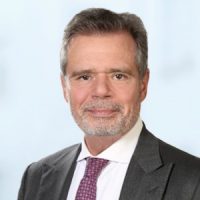
Friedbert Pflüger
European Centre for Climate, Energy and Resource Security (EUCERS)
Prof. Dr. Friedbert Pflüger, Director of the European Centre for Climate, Energy and Resource Security (EUCERS), Department of War Studies, King’s College London, and managing partner of Pflüger International GmbH.
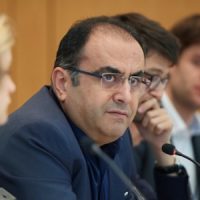
Goodarz Mahbobi
axxessio GmbH
Goodarz Mahbobi is CEO at the IT and management consultancy axxessio GmbH in Bonn and Darmstadt.
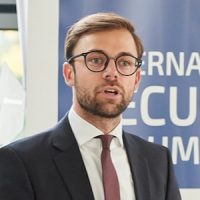
Hendrik W. Ohnesorge
University of Bonn
Dr. Hendrik W. Ohnesorge is Managing Director and Research Fellow at the Center for Global Studies (CGS)/Chair in International Relations at the University of Bonn. His latest book is entitled “Soft Power: The Forces of Attraction in International Relations” (Springer International).

Jackson Janes
President Emeritus of AGI
Jackson Janes is the President Emeritus of the American-German Institute in Washington, DC, where he has been affiliated since 1989.
Dr. Janes has been engaged in German-American affairs in numerous capacities over many years. He has studied and taught in German universities in Freiburg, Giessen and Tübingen. He was the Director of the German-American Institute in Tübingen (1977-1980) and then directed the European office of The German Marshall Fund of the United States in Bonn (1980-1985). Before joining AICGS, he served as Director of Program Development at the University Center for International Studies at the University of Pittsburgh (1986-1988). He was also Chair of the German Speaking Areas in Europe Program at the Foreign Service Institute in Washington, DC, from 1999-2000 and is Honorary President of the International Association for the Study of German Politics .
Dr. Janes is a member of the Council on Foreign Relations, the International Institute for Strategic Studies, the Atlantic Council of the United States, and American Purpose. He serves on the advisory boards of the Berlin office of the American Jewish Committee, and the Beirat der Zeitschrift für Außen- und Sicherheitspolitik (ZfAS). He serves on the Selection Committee for the Bundeskanzler Fellowships for the Alexander von Humboldt Foundation.
Dr. Janes has lectured throughout Europe and the United States and has published extensively on issues dealing with Germany, German-American relations, and transatlantic affairs. In addition to regular commentary given to European and American news radio, he has appeared on CBS, CNN, C-SPAN, PBS, CBC, and is a frequent commentator on German television. Dr. Janes is listed in Who’s Who in America and Who’s Who in Education.
In 2005, Dr. Janes was awarded the Officer’s Cross of the Order of Merit of the Federal Republic of Germany, Germany’s highest civilian award.
Education:
Ph.D., International Relations, Claremont Graduate School, Claremont, California
M.A., Divinity School, University of Chicago
B.A., Sociology, Colgate University
Expertise:
Transatlantic relations, German-American relations, domestic German politics, German-EU relations, transatlantic affairs.
__
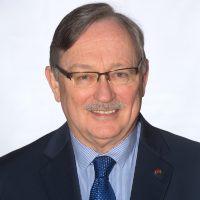
James D. Bindenagel
University of Bonn
James D. Bindenagel is a retired U.S. Ambassador, Henry-Kissinger-Professor (Emeritus) at Bonn University, and Senior Non-Resident Transatlantic Fellow at the German Marshall Fund of the United States. He has published: Germany: From Peace to Power? Can Germany Lead in Europe without Dominating it? (2020) and International Sicherheit im 21. Jahrhundert, Deutschlands Verantwortung (2015), both published by V&R Bonn for Bonn University.

Jürgen Setzer
Bundeswehr
GenMaj Jürgen Setzer is Vice Chief of the Cyber- and Information Domain Service and Chief Information Security Officer of the Bundeswehr.
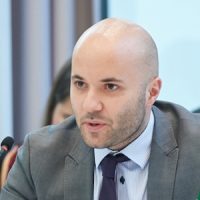
Kaan Sahin
German Council on Foreign Relations (DGAP)
Kaan Sahin is a Research Fellow for Technology and Foreign Policy at the
German Council on Foreign Relations (DGAP).
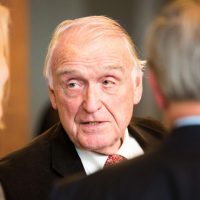
Karl Kaiser
Harvard University
Karl Kaiser is Adjunct Professor of Public Policy at the Kennedy School and Senior Associate of the Program on Transatlantic Relations of the Weatherhead Center for International Affairs at Harvard.

Malte Göttsche
Aachen Institute for Advanced Study in Computational Engineering Science (AICES)
Prof. Dr. Malte Göttsche is the Leader of the Nuclear Verification and Disarmament Group at the Aachen Institute for Advanced Study in
Computational Engineering Science (AICES) Graduate School of RWTH Aachen University.
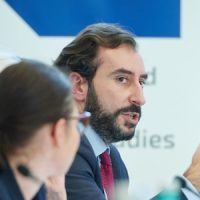
Nicolas Mazzucchi
Fondation pour la Recherche Stratégique (FRS)
Dr. Nicolas Mazzucchi is a Research Fellow at the Fondation pour la Recherche Stratégique (FRS) in charge of cyber, energy, and primary goods issues.

Sönke Marahrens
German Institute for Defense and Strategic Studies
Col i.G. Sönke Marahrens is Colonel (GS) and Program Director of the German
Institute for Defense and Strategic Studies.
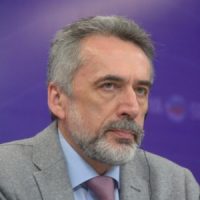
Vladislav Belov
Russian Academy of Sciences, Moscow
Dr. Vladislav Belov is the Research Director at the Institute of Europe of the
Russian Academy of Sciences, Moscow.
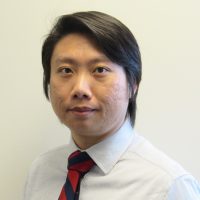
Yixiang Xu
China Fellow; Program Officer, Geoeconomics
Yixiang Xu is the China Fellow and Program Officer, Geoeconomics at AGI, leading the Institute’s work on U.S. and German relations with China. He has written extensively on Sino-EU and Sino-German relations, transatlantic cooperation on China policy, Sino-U.S. great power competition, China's Belt-and-Road Initiative and its implications for Germany and the U.S., Chinese engagement in Central and Eastern Europe, foreign investment screening, EU and U.S. strategies for global infrastructure investment, 5G supply chain and infrastructure security, and the future of Artificial Intelligence. His written contributions have been published by institutes including The Chinese Academy of Social Sciences, The United States Institute of Peace, and The Asia Society's Center for U.S.-China Relations. He has spoken on China's role in transatlantic relations at various seminars and international conferences in China, Germany, and the U.S.
Mr. Xu received his MA in International Political Economy from The Josef Korbel School of International Studies at The University of Denver and his BA in Linguistics and Classics from The University of Pittsburgh. He is an alumnus of the Bucerius Summer School on Global Governance, the Global Bridges European-American Young Leaders Conference, and the Brussels Forum's Young Professionals Summit. Mr. Xu also studied in China, Germany, Israel, Italy, and the UK and speaks Mandarin Chinese, German, and Russian.
__
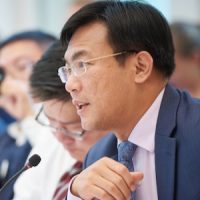
Zhexin Zhang
Shanghai Institute for International Studies
Dr. Zhexin Zhang is a Assistant Research Fellow at the Center for Asia Pacific Studies and Assistant Director of the Institute of Taiwan, Hong Kong, and Macao Studies at the Shanghai Institute for International Studies.
Report of the International Security Forum 2019
The Forum noted that the global political climate today is marked by a new competitive edge in international politics, the rise of systemic challenges to liberal democracy, and heightened political tensions between old rivals just as much as between longstanding allies. These developments are accompanied by a growing number of new cross-border security challenges in international politics and security that seem increasingly difficult to tackle in an atmosphere of distrust and renewed zero-sum-thinking.
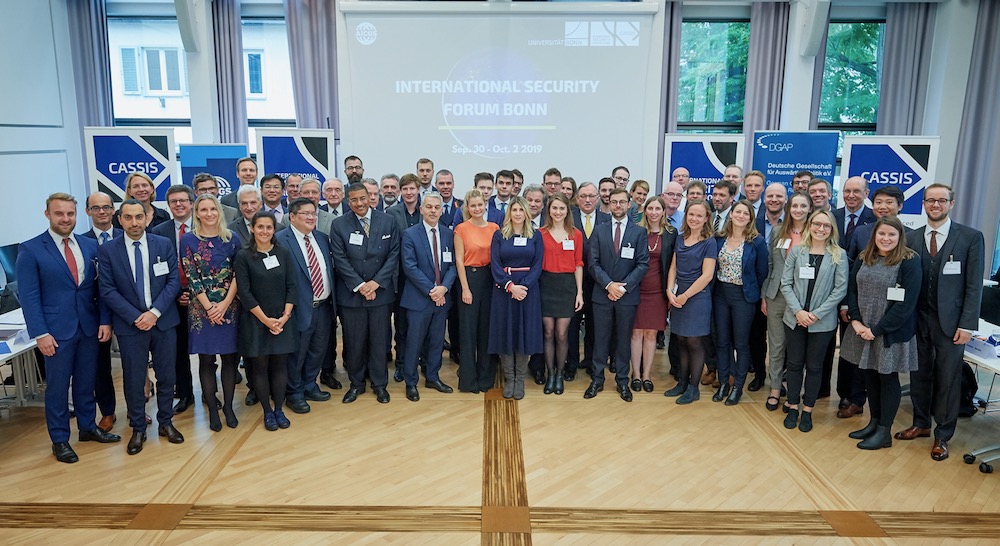
Thus, the Forum aimed to examine these trends from two specific perspectives: The first session was concerned with the West’s prospects during a time when many of the premises of European foreign policy are contested and Western global influence is declining. What oversights or mistakes caused liberalism’s current crisis? In what ways may political leaders on both sides of the Atlantic be able to address internal and external challenges? Will the West in its previous form unravel, reform itself, or enter a new path entirely to adapt to a changing world? Second, the 2019 Forum aimed to provide an outlook toward the key emerging state that many international observers believe to be a particular test for what is commonly referred to as the international liberal order: the People’s Republic of China’s global ascent. What drives Chinese foreign policy? What could be China’s long-term goals with regard to reshaping the international system to better reflect its own interests? And how should global leaders react to shifting power relations?
Comments and Perspectives
Vladislav Belov: Russia, China, the Belt & Road Initiative and A New World Order
James Bindenagel: In a Dissolving World Order, Europe and Germany Need a More Strategic Outlook
Dean Cheng: China, Europe and Future Security
Arash Duero and Friedbert Pflüger: A New Challenge – Climate Security
Benjamin Fricke: Artificial Intelligence, 5G, and Geopolitics
Malte Göttsche: A Technical Forum for Confidence-Building in the Autonomous Weapons Realm
Jackson Janes: Competing Compasses in the Post-Cold War Era
Goodarz Mahbobi: A Challenge for IT Security Experts: Small and Medium Enterprises and Industry 4.0
Sönke Marahrens: Huawei and Europe’s Strategic Autonomy
Nicolas Mazzucchi: Artificial Intelligence in the European Union: Choosing the Right Path
Hendrik Ohnesorge: A Fatal Neglect: On the Significance of U.S. Soft Power Today
Benjamin Rhode: Tough Choices Ahead for European Security
Kaan Sahin: AI and Warfare: Pending Issues for Europe
Jürgen Setzer: The Challenge of Digitalisation – the Bundeswehr Cyber and Information Domain Service
Yixiang Xu: Opportunities and Challenges in Developing Military AI Applications
Zhang Zhexin: The U.S. Decoupling Attempt Is Too Costly for the World








